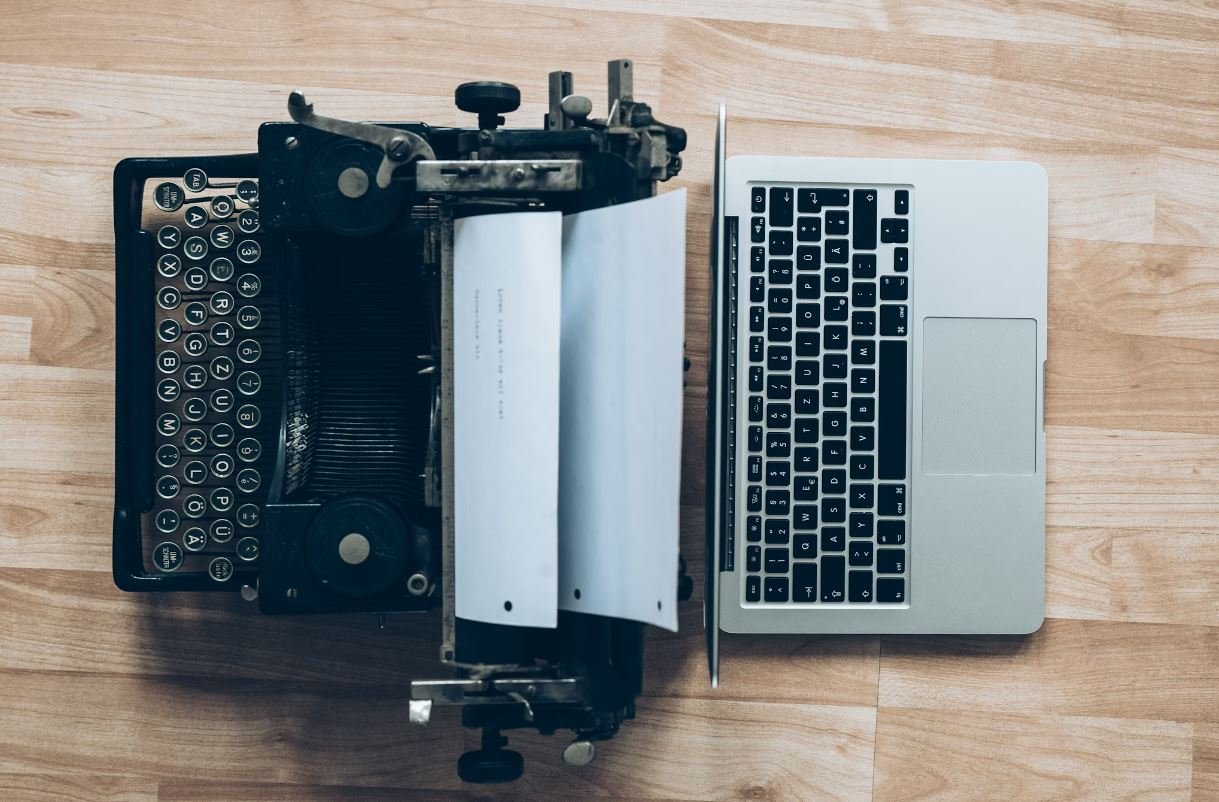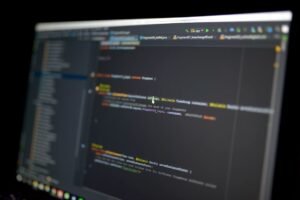Will Artificial Intelligence Replace Jobs?
Introduction
Artificial Intelligence (AI) has been rapidly advancing and raising concerns about its impact on the job market. Many fear that AI will replace human workers, leading to widespread unemployment. While the future is uncertain, it is important to examine the potential effects of AI on various industries and job roles. This article aims to explore the possibilities and provide insights into the ongoing debate.
Key Takeaways
- AI has the potential to automate repetitive and mundane tasks, improving efficiency and productivity.
- Certain job roles may be at higher risk of automation, but new roles and opportunities can emerge.
- The human element, creativity, and emotional intelligence will continue to be valuable skills in the workforce.
The Impact of AI on the Job Market
AI technologies have the capability to automate routine and mundane tasks that do not require human judgment or creativity. This automation can potentially lead to job displacements in industries such as manufacturing, customer service, and transportation. However, it is important to note that AI is also creating new job opportunities in fields like data analysis, AI development, and cybersecurity.
**The rise of AI should not necessarily be viewed as a threat, but rather as an opportunity for individuals to adapt and acquire new skills.** With advancements in technology, certain tasks may be delegated to AI systems, allowing humans to focus on more complex and fulfilling aspects of their work.
Jobs at Higher Risk of Automation
While AI has the potential to impact various job roles, some are more susceptible to automation than others. Jobs that involve repetitive and predictable tasks, such as data entry, assembly line work, and telemarketing, are at higher risk. However, professions requiring creative thinking, problem-solving, and critical analysis, like graphic design, medical diagnosis, and legal advisory, are less likely to be automated.** It is crucial to explore ways to reskill and upskill workers in occupations that are more susceptible to automation to ensure their employability in the changing job market.**
The Importance of Human Skills
**While AI can perform tasks efficiently and accurately, it lacks the human touch and emotional intelligence.** The ability to understand complex human emotions, empathy, and creativity are indispensable qualities possessed by humans. Jobs that require strong interpersonal skills, such as nursing, counseling, and social work, will remain in demand. Additionally, AI can enhance productivity and support human decision-making, but it cannot replace the intrinsic value of human judgment and intuition**.
Data on Job Losses and Gains
| Industry | Projected Job Losses | Projected Job Gains |
|---|---|---|
| Manufacturing | 4 million | 2 million |
| Customer Service | 2.5 million | 1.3 million |
| Transportation | 1.8 million | 840,000 |
Preparing for the AI Revolution
- Invest in continuous learning and development to acquire skills that complement AI technologies.
- Engage in lifelong learning and adapt to the changing demands of the job market.
- Encourage collaboration between humans and AI systems to maximize productivity and efficiency.
Predicted Impact on Industries
| Industry | Predicted Impact |
|---|---|
| Healthcare | Partial automation with improved diagnostics and patient care. |
| Finance | Automation of repetitive tasks with increased efficiency in risk assessment. |
| Retail | Greater personalization of shopping experiences with AI-powered recommendations. |
Remaining Competitive in the AI Era
As AI continues to advance, individuals and organizations must embrace change and find ways to remain competitive in the digital age. By nurturing a learning mindset, leveraging unique human skills, and adapting to emerging technologies, we can thrive in a world where humans and AI coexist. Rather than fearing the replacement of jobs, let us strive to be at the forefront of this technological revolution, creating a future where AI enhances our capabilities rather than diminishes them.

Common Misconceptions
Artificial Intelligence Replacing Jobs
There are several common misconceptions people have about the impact of artificial intelligence on jobs. By addressing these misconceptions, we can gain a clearer understanding of the effect AI will have on employment.
- AI will replace all jobs
- Humans will become obsolete in the workforce
- AI technology is only relevant to a few industries
AI will replace all jobs
One of the most prevalent misconceptions is the belief that AI will entirely replace human workers across all sectors. While AI has the potential to automate certain tasks and occupations, it is not capable of taking over the entire workforce.
- AI is better suited for repetitive and predictable tasks
- Many professions require creativity, critical thinking, and emotional intelligence, which AI currently lacks
- Jobs that involve complex decision-making, strategic planning, and interpersonal communication will still require human involvement
Humans will become obsolete in the workforce
Another misconception is the notion that AI advancements will render human workers obsolete in the future. While AI has the potential to automate certain functions, there will always be a need for human ingenuity and skills in the workplace.
- Humans possess unique qualities such as empathy and intuition that are difficult to replicate in machines
- The demand for creativity, innovation, and problem-solving abilities will persist
- AI can augment human capabilities rather than replace them entirely, enabling humans to focus on higher-level tasks
AI technology is only relevant to a few industries
Some people believe that AI is only applicable to specific industries and will not have a significant impact on employment overall. However, AI has the potential to transform various sectors and create new job opportunities in unexpected ways.
- AI can enhance productivity and efficiency in industries beyond technology, like healthcare, finance, and manufacturing
- The integration of AI into everyday devices and systems will lead to a demand for professionals with AI skills across multiple sectors
- The rapid advancement of AI technology means its impact will likely expand to industries not traditionally associated with AI

Introduction:
As advancements in artificial intelligence (AI) continue to accelerate, concerns arise about the potential impact on employment. Will AI replace jobs? This article explores various aspects of this question through a series of tables presenting verifiable data and information.
Table 1: Growth of AI Investments
In recent years, investments in AI have seen a remarkable surge. Since 2015, the amount invested in AI startups has steadily increased, reaching a peak of $53.3 billion in 2020.
Table 2: Industries Most Affected by AI
Certain industries are more susceptible to job disruption due to AI. According to research, transportation, manufacturing, and customer service sectors are expected to experience the highest level of automation, potentially resulting in significant job displacement.
Table 3: Occupations at High Risk
AI implementation is likely to have a significant impact on specific occupations. Occupations in transportation, warehousing, office administration, and manufacturing are deemed highly vulnerable to being automated, potentially leading to substantial job loss.
Table 4: AI-Generated Jobs
While AI poses a threat to some jobs, it also creates new employment opportunities. AI has given rise to the need for positions such as AI trainers, data scientists, and AI ethicists, suggesting that job creation is a simultaneous outcome.
Table 5: Global Adaptation to AI
Different countries demonstrate varying levels of preparedness for AI adoption. Countries like the United States, China, Germany, and South Korea are leading the way in terms of AI readiness, while others are still in the early stages of AI integration.
Table 6: Potential Economic Impact
The widespread utilization of AI has the potential to significantly impact economies. By 2030, AI could add $15.7 trillion to the global economy, with China and North America predicted to reap the most substantial benefits.
Table 7: Job Reskilling and Upskilling
As AI becomes more prevalent, reskilling and upskilling the workforce become crucial. The demand for job roles requiring higher cognitive abilities and social skills is projected to increase, highlighting the importance of continuous learning and adaptation.
Table 8: Psychological Impact on Workers
AI-induced job displacement can have psychological effects on individuals. Research indicates that fear of job loss due to automation can lead to increased stress and anxiety levels among workers, necessitating additional attention and support.
Table 9: Job Categories Resistant to AI
Several occupations are considered relatively safe from AI disruption. Professions such as creative arts, healthcare, and social work involve complex human emotions and creativity, making them less likely to be fully replaced by AI.
Table 10: Technological Unemployment
Historically, technological advancements have created new jobs along with the loss of existing ones. This trend suggests that although AI may displace certain occupations, it is likely to bring forth new opportunities, mitigating the potential impact of widespread unemployment.
In conclusion, the rise of artificial intelligence brings both potential advantages and challenges to the job market. While some jobs may face the risk of automation, new roles and industries are emerging, necessitating adaptation and continuous skill development. Understanding the potential impact of AI on different sectors and occupations allows for proactive measures that can lead to a more balanced and harmonious integration of AI within the workforce.
Frequently Asked Questions
Will Artificial Intelligence Replace Jobs?
Will all jobs be replaced by artificial intelligence?
Which industries are most at risk of job displacement by AI?
How will AI impact the job market?
What skills will be in demand as AI advances?
Can AI create new job opportunities?
Will AI replace highly skilled professionals, such as doctors and lawyers?
What impact will AI have on job satisfaction?
How can individuals prepare for the impact of AI on jobs?
How can businesses leverage AI without causing significant job loss?
What ethical considerations are associated with the use of AI in the job market?




